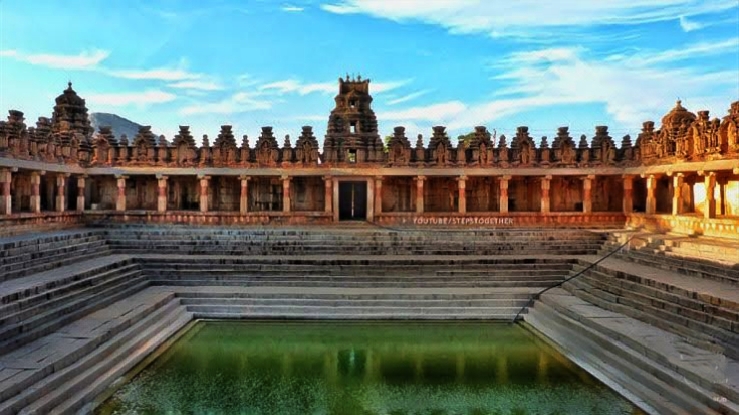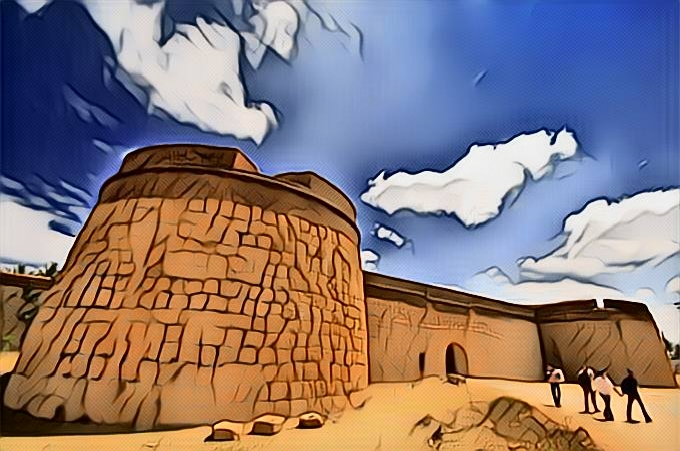Folk traditions are an integral part of a culture’s identity and history. They include customs, rituals, beliefs, stories, songs, dances, and crafts that have been passed down from generation to generation through oral tradition. Folk traditions are unique expressions of a culture’s values, beliefs, and way of life.
Folk traditions have been passed down from generation to generation for centuries, and they continue to be celebrated today. By learning about folk traditions, we can become part of this long tradition and contribute to its continuation. We can pass on these traditions to future generations, ensuring that our cultural heritage is preserved and celebrated for years to come.
Subjects Covered: History, Art History & Iconography, Architecture, Problem Solving, Epigraphy
Hands-on Activity: Teams competing in a Scavenger Hunt by completing tasks and solve puzzles. In doing so they learn more about the temple in a fun & engaging way.

Folk traditions bring people together and create a shared sense of identity. When we participate in folk traditions, we become part of a larger cultural community. This can be especially important for individuals who have migrated to a new country or who feel disconnected from their cultural roots. Learning about folk traditions can help them connect with their cultural heritage and feel a sense of belonging.
Subjects Covered: History, Art History & Iconography, Architecture, Problem Solving, Epigraphy
Hands-on Activity: Teams competing in a Scavenger Hunt by completing tasks and solve puzzles. In doing so they learn more about the temple in a fun & engaging way.

Every culture has its own unique traditions, and learning about them helps us appreciate and respect different ways of life. It helps us understand that there is no one “right” way of doing things and that diversity should be celebrated. When we learn about folk traditions, we are exposed to new ideas and perspectives, which can broaden our horizons and make us more accepting of others
Subjects Covered: History, Art History & Iconography, Architecture, Problem Solving, Epigraphy
Hands-on Activity: Teams competing in a Scavenger Hunt by completing tasks and solve puzzles. In doing so they learn more about the temple in a fun & engaging way.

Folk traditions are a reminder of our ancestors’ way of life and the values they held dear. Through folk traditions, we can gain insight into our cultural heritage and understand the evolution of our society over time. For example, folk songs and dances reflect the history of a region and its people. Learning about them can provide a glimpse into the past and help us appreciate the cultural richness of our society.
Subjects Covered: Mathematics, Geography, History
Hands-on Activity: Use Trigonometry, Quadratic equations, Geometry skills to solve real world medieval problems. Compete against each other.

If you’re looking to immerse yourself in the rich and vibrant cultural heritage of Karnataka, Janapada Loka is the perfect destination. Located just a short drive from Bangalore, this folk museum showcases the state’s diverse folk traditions and art forms, making it a must-visit attraction for anyone interested in history, culture, and art. Inside Janapada Loka, you’ll be transported to a world of vibrant colors, intricate craftsmanship, and rich cultural traditions. The museum is home to an impressive collection of artifacts, including masks, puppets, musical instruments, and costumes, that showcase the unique folk art forms of Karnataka’s various regions. The museum’s beautifully landscaped grounds feature several traditional houses, temples, and shrines, that provide a glimpse into the daily lives of Karnataka’s rural communities. Janapada loka is also home to many folklore artisans who perform here throughout the year at different events. This location is the perfect choice to engage in a variety of focussed learning around culture and traditions. For purpose of our trip it provides a safe and contextually rich environment for learning.
08:00 AM – Depart School Campus.
9:30 AM to 11:00 AM – Tour of Devanahalli fort with the expert.
11:30 AM to 12:30 PM – Hands-on activity where we get to use our Math skills to solve real world problems.
12:30 PM to 01:30 PM – Lunch & Break
02:30 PM – 03:30 PM – Tour of the Bhoga Nandeeshwara Temple with the expert
03:30 PM to 04:30 PM – Scavenger hunt activity
04:30 PM to 05: 00 PM – Reflection
05:00 PM – Depart for School
Our program’s itinerary has been tailored to provide the most value and depth possible. Depending on the group’s requirements, we are happy to incorporate changes to the itinerary & program to focus on specific learning objectives and accommodate a longer or shorter duration.